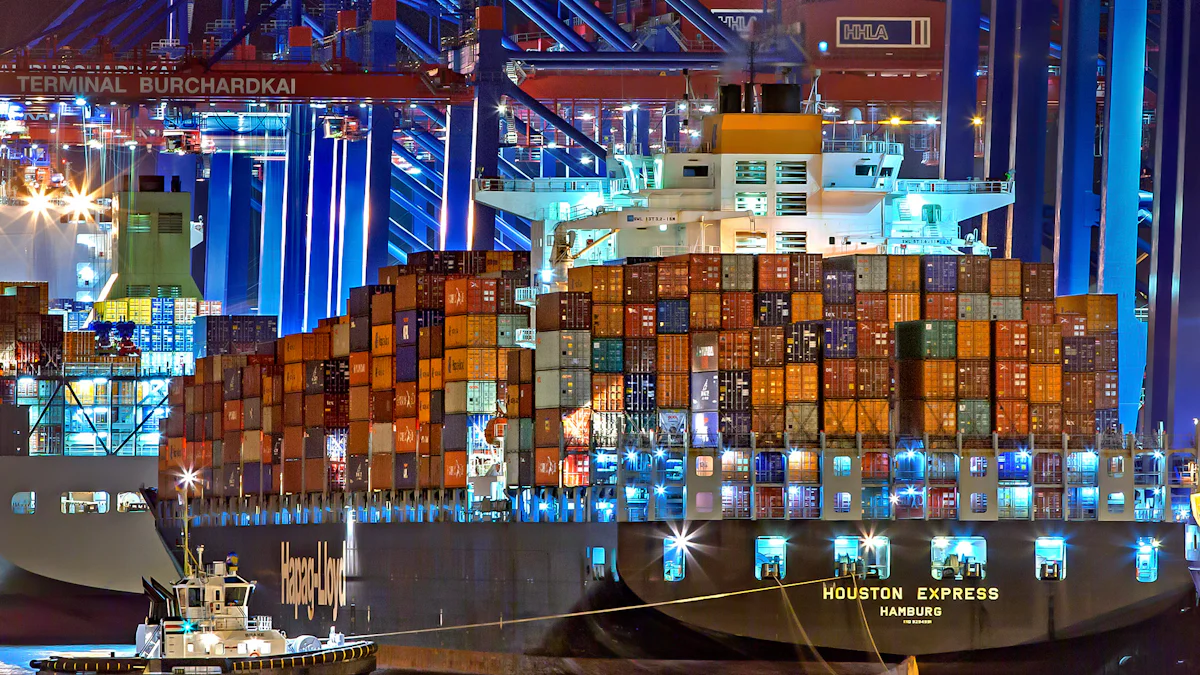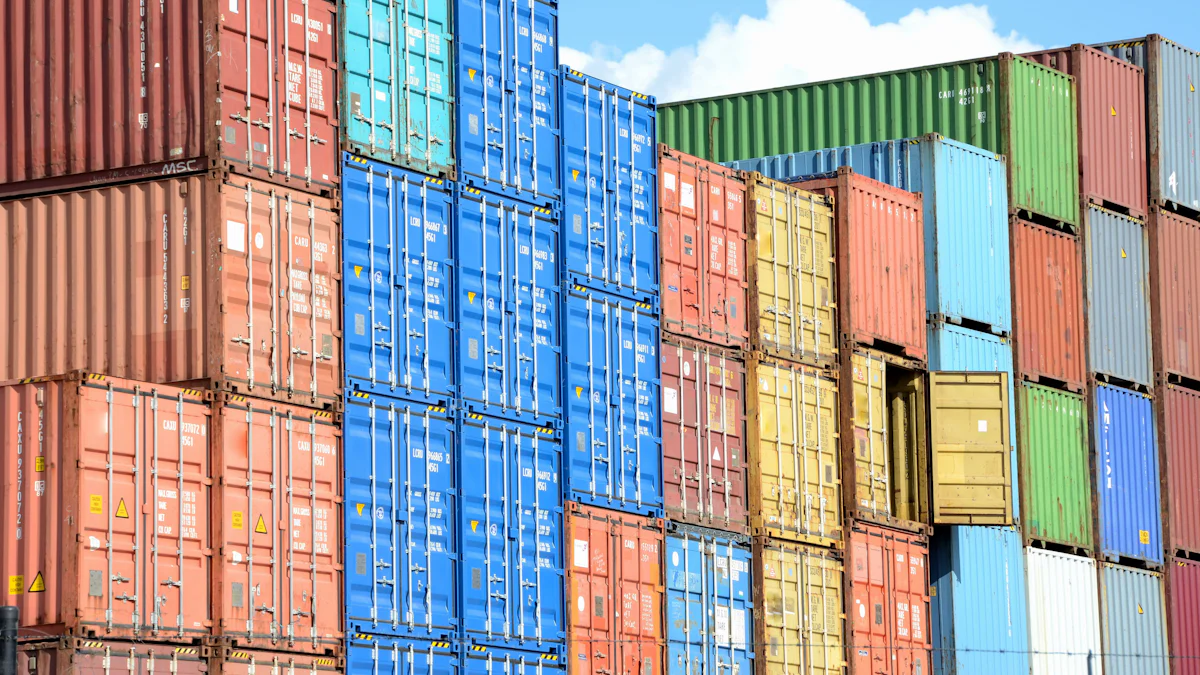Unveiling the Impact of Global Trade Policies on Economies

Global trade policies shape the landscape of international commerce, influencing economies worldwide. Understanding their profound impact of Global Trade Policies is crucial for policymakers and businesses alike. In this blog, we delve into the intricate web of trade regulations and agreements to uncover how they drive economic growth, enhance competitiveness, and foster innovation. Let's explore the dynamic realm where policies intersect with prosperity.
Impact of Global Trade Policies
When examining the Impact of Global Trade Policies on economies, it becomes evident that these policies are pivotal in shaping the economic landscape of nations. By fostering economic growth and enhancing competitiveness, trade policies play a fundamental role in driving innovation and prosperity.
Economic Growth
Trade Liberalization stands as a cornerstone of global trade policies, facilitating the flow of goods and services across borders. This process eliminates barriers to trade, promoting efficiency and specialization. Studies have shown that liberalization can lead to dynamic gains through more efficient investment patterns and technological diffusion. As countries engage in open trade practices, they can experience accelerated economic growth by capitalizing on greater economic specialization, increased investment opportunities, and enhanced productivity levels.
Technological Progress is another significant outcome of global trade policies impacting economic growth. Through international collaborations and knowledge exchange facilitated by trade agreements, countries can harness technological advancements to drive innovation and improve production processes. Research suggests that technological transfer resulting from trade openness can enhance overall productivity levels within economies.
Competitiveness
Market Access is a critical component influenced by global trade policies. By reducing trade barriers and promoting open markets, countries can expand their access to a wider consumer base. This increased market reach enables businesses to explore new opportunities for growth and development. Consumers benefit from lower prices and a diverse range of products due to enhanced market access resulting from trade liberalization.
Business Strategy plays a vital role in leveraging the competitive advantages offered by global trade policies. Companies must adapt their strategies to align with changing market dynamics influenced by international trade agreements. Strategic decisions related to sourcing, production, and distribution are crucial for maintaining competitiveness in a globalized economy.
Raxer Toledo's Analysis
Raxer Toledo's analysis provides valuable insights into the implications of global trade policies on economies worldwide. By examining key trends and outcomes resulting from these policies, Toledo highlights the importance of strategic decision-making at both governmental and corporate levels. The implications of trade agreements extend beyond immediate economic impacts to shape long-term growth trajectories for nations.
Key Insights
Trade liberalization fosters efficiency and specialization.
Technological progress drives innovation through knowledge exchange.
Market access expands business opportunities for sustainable growth.
Implications
Businesses need to adapt strategies to remain competitive.
Governments should focus on creating favorable policy environments.
Continued collaboration is essential for maximizing the benefits of global trade agreements.
Tariffs and Trade Barriers

Definition and Types
Import tariffs, also known as customs duties, are taxes imposed on goods imported into a country. These tariffs are levied by the government to generate revenue or protect domestic industries from foreign competition. Understanding the classification of products under the Harmonized Tariff Schedule is crucial for determining the applicable import tariffs. Small business exporters may seek advance rulings from the importing country's customs authority to ensure accurate product classification and tariff assessment.
Export tariffs are taxes imposed on goods leaving a country for international markets. These tariffs can influence the competitiveness of domestically produced goods in global trade. Export tariffs may be used to regulate exports, conserve natural resources, or generate government revenue. Small businesses engaging in international trade must be aware of export tariff implications to effectively price their products in foreign markets.
Impact on Economies
United States Case Study
In the United States, tariff policies have historically played a significant role in shaping international trade relations. The United States Harmonized Tariff Schedule categorizes imported goods and specifies applicable duty rates. Changes in United States tariff policies can directly impact trade flows and economic activities both domestically and globally. For instance, recent adjustments in U.S. tariff rates have sparked debates on protectionism versus free trade ideologies.
Trade Reduce Economic Output
The imposition of high tariffs or trade barriers can hinder economic growth by reducing international trade opportunities. When countries engage in protectionist measures through excessive tariffs, it limits market access for businesses and consumers alike. Such restrictions can lead to decreased economic output, lower consumer welfare, and disrupted supply chains. Erica York's analysis emphasizes the negative repercussions of trade barriers on overall economic performance.
Erica York's Perspective
Key Points
Erica York highlights that international trade affects various aspects of an economy, from market dynamics to consumer choices. Trade barriers such as tariffs can distort competitive forces within industries and limit innovation potential. Understanding the implications of these barriers is essential for policymakers seeking to promote sustainable economic development through open trade practices.
Analysis
York's analysis underscores the importance of balancing protectionist measures with free trade principles to achieve optimal economic outcomes. By evaluating the impact of tariffs on different sectors and regions, policymakers can design effective strategies that support local industries while fostering global competitiveness.
Foreign Direct Investment

In the realm of international economics, Foreign Direct Investment (FDI) emerges as a pivotal driver of economic growth and competitiveness. By attracting FDI, countries can enhance their efficiency and bolster their position in the global market.
Role in Economic Growth
Efficiency is a hallmark of FDI's impact on economic growth. When multinational corporations invest in foreign markets, they bring advanced technologies and management practices that can streamline production processes and boost overall productivity. This infusion of expertise contributes to the efficient allocation of resources within local industries, fostering sustainable growth over time.
Competitiveness is another facet influenced by FDI. As foreign companies establish operations in a host country, they introduce new standards of quality and innovation that local firms can learn from. This knowledge transfer enhances the competitive landscape by encouraging domestic businesses to improve their products and services to meet global standards. Ultimately, this exchange elevates the competitiveness of local industries on an international scale.
Impact on Local Economies
Job Creation is a direct outcome of FDI inflows into a country. By setting up new facilities or expanding existing operations, multinational corporations generate employment opportunities for the local workforce. These jobs not only provide individuals with stable incomes but also contribute to the overall economic development of communities by stimulating consumer spending and supporting small businesses.
Technological Transfer plays a crucial role in shaping local economies through FDI. When foreign companies introduce advanced technologies into host countries, they facilitate knowledge sharing and skill development among local workers. This transfer of technological know-how empowers domestic industries to adopt more efficient practices, leading to increased productivity levels and enhanced competitiveness in the global market.
Tax Implications
Revenue Generation is a significant benefit associated with FDI activities. As multinational corporations operate within a host country, they contribute to tax revenues through corporate taxes, employee income taxes, and other fiscal mechanisms. These financial contributions bolster government coffers, enabling public investments in infrastructure, education, healthcare, and other essential services that support long-term economic growth.
Policy Recommendations are essential for maximizing the positive impacts of FDI on local economies. Governments should focus on creating an attractive investment climate by implementing transparent regulations, offering incentives for foreign investors, and fostering partnerships between multinational corporations and local businesses. By adopting proactive policies that encourage FDI inflows while safeguarding national interests, countries can harness the full potential of foreign investment for sustainable economic development.
Role of WTO
The World Trade Organization (WTO) serves as a cornerstone in fostering global economic stability through transparent and open trade policies. By maintaining stability in international commerce, the WTO plays a pivotal role in ensuring that nations adhere to fair trading practices and uphold the principles of non-discrimination.
Transparency
Transparency within the WTO framework is essential for promoting trust among member countries and facilitating informed decision-making. Through transparent processes and clear communication channels, the WTO enhances accountability and fosters a level playing field for all participants. Transparent trade policies enable businesses to navigate global markets with confidence, knowing that regulations are applied consistently across borders.
Open Trade Policies
Open trade policies advocated by the World Trade Organization Policy promote inclusivity and collaboration among nations. By encouraging free trade and reducing barriers to market access, the WTO creates opportunities for economic growth and development on a global scale. Open trade policies facilitate the exchange of goods, services, and ideas across borders, driving innovation and prosperity for both developed and developing economies.
Future Developments
As the global landscape continues to evolve, the World Trade Organization faces new challenges and opportunities in shaping future trade dynamics. Anticipating potential changes in geopolitical tensions and policy uncertainties, the WTO must adapt its strategies to maintain relevance in a rapidly changing world.
Potential Changes
Potential changes within the WTO may involve strengthening dispute settlement mechanisms, addressing subsidies effectively, and developing international norms on industrial policies. By proactively addressing these areas, the organization can enhance its effectiveness in resolving trade disputes, promoting fair competition, and fostering sustainable economic growth globally.
Recommendations
To navigate future developments successfully, it is imperative for the World Trade Organization to prioritize restoring a fully functioning dispute settlement mechanism. Additionally, progress on dealing with subsidies responsibly and formulating international rules on industrial policies will be critical for upholding fair trade practices worldwide.
Trade openness can help to accelerate long run economic growth by allowing for greater economic specialization, encouraging investment, and increasing productivity.
Terms like 'national security' and 'reshoring' are increasingly mentioned in news and research papers.
Robust economic growth is crucial for sustained poverty reduction.
Trade agreements benefit U.S. export-dependent industries like the automobile industry and capital goods.
Inward-looking policies are expected to hinder international trade growth.
By summarizing the intricate relationship between global trade policies and economies, it becomes evident that embracing open trade practices is essential for sustainable growth. The importance of fostering innovation, enhancing competitiveness, and promoting market access cannot be overstated. Looking ahead, policymakers must prioritize transparency, collaboration, and strategic decision-making to navigate the evolving landscape of international commerce effectively. Embracing the principles of free trade while addressing emerging challenges will be key to unlocking the full potential of global trade policies for future prosperity.
